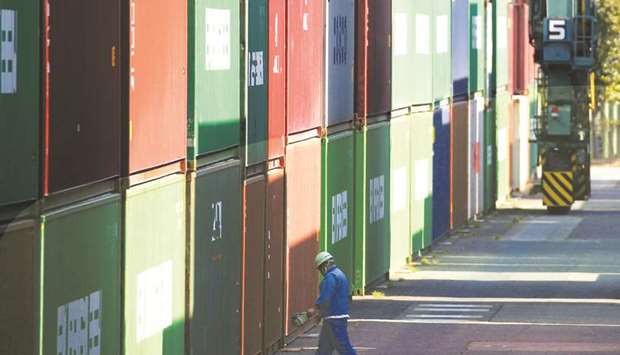The 1.1% month-on-month fall, pressured by a pullback in production of general purpose machinery, compared with a median market forecast of a 1.9% decline, following a 2.9% increase in October, the data showed.
While the latest figure was better than expected, the outlook pointed to a bumpier road for Japanese manufacturers.
Manufacturers surveyed by the Ministry of Economy, Trade and Industry (METI) expect output to rise 2.2% in December but decline 0.8% in January, the data showed.
Yesterday’s data comes at a time of heightening volatility in global markets on concerns over slowing growth in US and Chinese economies, uncertainty about US fiscal and monetary policies, and trade protectionism.
“Factory output is in the trend towards levelling off,” said Takeshi Minami at Norinchukin Research Institute.
“Japan’s export-reliant economy will face a severe situation next year due to the US-China trade frictions and their ripple effects just as global trade growth is decelerating.”
Economists expect factory output and economic growth to rebound in the current quarter after a run of natural disasters disrupted production and triggered a third-quarter economic contraction.
However, authorities remain wary about the potential impact of the China-US trade war, which has not yet shown up in Japan’s output data.
Adding to concerns about overseas demand, Japan’s private consumption, which accounts for about 60% of the economy, shows no signs of strength either.
Japanese retail sales rose 1.4% in the year to November, slowing sharply from the 3.6% increase seen in October and undershooting a 2.2% gain expected by economists, separate data showed.
New-model cars, high fuel prices and demand for cosmetics among inbound tourists supported sales.
But retailers faced pressure from slowing demand for clothing due to warm weather and for smartphones and digital cameras, highlighting headwinds for domestic consumption.
Separate data showed Japan’s jobless rate rose to 2.5% in November from 2.4% in October, and the jobs availability grew to 1.63 jobs per applicant from 1.62 in the previous month, near a 44-year high.
Japan’s ageing and shrinking population has led to a tight job market, causing labour shortages and pushing up wages gradually as many companies scramble to attract workers.
Despite more than five years of the Bank of Japan’s (BoJ) massive monetary stimulus to conquer price declines, however, inflation is struggling to accelerate, underscoring the challenge the central bank faces.
Analysts say the BoJ is in no position to normalise monetary policy anytime soon despite concerns about side-effects from a prolonged easy money policy, such as a hit to banks’ profits because of dwindling margins due to ultra-low interest rates.
Some flag the possibility of further easing down the road given tame inflation, and risks to Japan’s economy – the world’s third largest – and business investment from a slowdown in global economic growth. Consumer inflation remains well below the BoJ’s 2% goal. Tokyo-area’s core consumer price index (CPI), which includes oil products but excludes fresh food prices, rose 0.9% in the year to December, slowing from 1% in November and matching the 0.9% forecast by economists.

